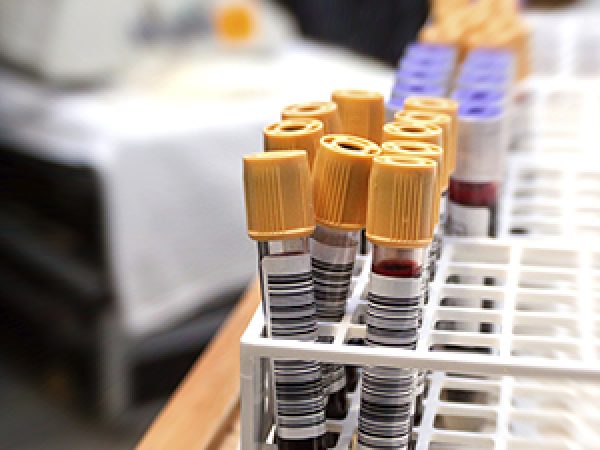Colonoscopy: A Powerful Tool for Cancer Prevention
Guest post by Raymond N. DuBois, MD, PhD, FAACR
The headlines stunned many medical professionals, cancer patients, and colorectal cancer advocates Monday morning: “Colonoscopies may not be as effective as thought, study suggests.” “A colonoscopy study has some wondering if they should have the procedure.” “In gold-standard trial, colonoscopy fails to reduce rate of cancer deaths.”

MD, PhD, FAACR
These headlines were a somewhat misleading representation of a major clinical trial, the Northern-European Initiative on Colorectal Cancer (NordICC), the results of which were published Sunday in The New England Journal of Medicine. The trial enrolled more than 84,000 adults from Poland, Norway, Sweden, and the Netherlands between 2009 and 2014. The researchers invited 28,220 study participants to undergo a single screening colonoscopy and compared colorectal cancer diagnoses and death between those who received the invitation and those who did not.
Here’s what those headline writers seized upon: In 10 years of follow-up, those who were invited to get colonoscopies were about 18 percent less likely to be diagnosed with colorectal cancer than those in the other group, and they were no less likely to die of the disease.
Those two statistics are just a small part of a large, complex study. Focusing on these statistics misses several important findings that confirm the power of colonoscopies to improve outcomes. What’s more, the communication of this study muddles the message that colorectal cancer screening truly does save lives.
Colorectal cancer is the second most deadly type of cancer, expected to cause 52,580 deaths in the United States this year. However, advances in screening and detection have led to sustained drops in incidence and mortality rates in the past two decades.
Colorectal cancer has some unique characteristics that make it a good fit for modern screening tools. Typically, there is a 10-year lag between the time early lesions start and the time cancer forms. That’s a long interval in which physicians can detect very small polyps and remove them before they become cancerous.
That’s where colonoscopy comes in. Beginning in the mid-‘90s, the U.S. Preventive Services Task Force (USPSTF) began recommending that Americans undergo a colonoscopy at age 50. Last year, they revised the recommendation to age 45. If the results are clear, patients should undergo the procedure every 10 years. People with family histories of colorectal cancer should start receiving colonoscopies earlier, and more frequently.
Research has indeed indicated that colonoscopies reduce the incidence and mortality rates of colorectal cancer. But research is iterative. Every time we take a step forward in cancer research, we have to examine our new discovery to make sure the data holds up over time. We certainly want to confirm results before changing any clinical recommendations.
The NordICC results do not justify changing current recommendations.
Digging deeper into the study reveals crucial data points: Of the 28,220 people who were “invited” to get a colonoscopy, only 42 percent did so. Among the people who did get colonoscopies, the risk of developing colorectal cancer dropped by 31 percent, and the risk of dying from the disease dropped by 50 percent.
There are a few other elements of this study that require careful analysis. First of all, the follow-up period doesn’t yet match the natural history of colorectal cancer. It can take 15 to 20 years for colorectal cancer to develop. This trial, with a 10-year follow-up period, is too short to fully measure the impact of colonoscopy.
Another major caveat: The NordICC study was conducted in Europe. No study conducted outside the United States will ever be fully generalizable to the American public. In this case, the nations in the NordICC study all have publicly funded health care. This conveys many benefits to their citizens; however, it also means that health care systems tend to seek out lower-cost interventions. Colonoscopies are costly procedures. To contain costs, the nations in the study tend to favor sigmoidoscopy, a less invasive test that examines only the lower colon. (Colonoscopies examine the entire large intestine.) Studying the efficacy of colonoscopies in these countries is useful, but it does not paint a complete picture.
Secondly, since colonoscopies are less common in these countries, colonoscopists simply do not have the same level of experience as many practitioners in the United States. A highly experienced colonoscopist can discern polyps at the very earliest stages, and can find polyps that are tucked away in the colon’s deepest folds. Less experienced practitioners may be more likely to miss these polyps—again, creating a possible confounding factor in the NordICC study.
As we near the end of 2022, we are only just beginning to recover ground lost during the COVID-19 pandemic, when nearly 10 million screening tests for common cancers were canceled or simply never scheduled. In the specific case of colorectal cancer, a sustained increase in early-onset cases means that we should actually be encouraging people with family histories to receive colonoscopies at earlier ages. Also lost in this week’s headlines is the important fact that colonoscopy is not the only screening tool. Patients should speak with their doctors to determine whether they should receive a colonoscopy or a blood or stool-based test.
To be sure, the NordICC study provides fodder for important conversations, guided by updates that the NordICC researchers will provide in the next five years. In the meantime, the AACR and other medical societies must speak up and let the public know that this is not the time to throw away the colonoscope.
Raymond N. DuBois, MD, PhD, is the director of the Hollings Cancer Center at the Medical University of South Carolina in Charleston, South Carolina, and the Executive Chair of the Board of the Mark Foundation for Cancer Research. DuBois served as President of the American Association for Cancer Research (AACR) in 2008-2009. DuBois is Editor-in-Chief of Cancer Prevention Research, a journal of the AACR; and a Fellow of the AACR Academy.



